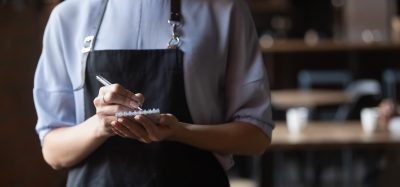Shining a light on food fraud
- Like
- Digg
- Del
- Tumblr
- VKontakte
- Buffer
- Love This
- Odnoklassniki
- Meneame
- Blogger
- Amazon
- Yahoo Mail
- Gmail
- AOL
- Newsvine
- HackerNews
- Evernote
- MySpace
- Mail.ru
- Viadeo
- Line
- Comments
- Yummly
- SMS
- Viber
- Telegram
- Subscribe
- Skype
- Facebook Messenger
- Kakao
- LiveJournal
- Yammer
- Edgar
- Fintel
- Mix
- Instapaper
- Copy Link
Posted: 20 March 2024 | Professor Chris Elliott | No comments yet
Professor Chris Elliott shares a significant advancement in food fraud detection that can expose non-authentic ingredients.


For many readers of New Food it will come as no surprise that I have worked for many years on the murky topic of food fraud, specifically working to detect and ultimately prevent it happening wherever possible.
I’ve been involved in many research projects and investigations to find new and better ways of detecting the many types of food that are adulterated or false claims about their origin or production methods.
I don’t write this lightly, but I do think we have made one of the most important scientific breakthroughs in helping stamp out fraud that has been reported for many years.
Quite a long time ago, myself and my research team decided the best way to detect non-authentic food was not taking samples to a lab for testing. Instead, we would take the lab to the samples, ie where food is grown, processed and sold. We put a huge amount of effort into this goal and even went to the lengths of forming our own spin-out company, Bia-analytical, to drive this mission forward.
We had the ambition of combining state of the art miniaturised hardware, cloud based computing and artificial intelligence-based modelling. When achieved, we believed this approach would provide a very simple to use yet extraordinarily powerful platform to undertake food authenticity analysis by non-experts across multiple supply chains.
We firmly believe we have cracked this and to prove it we teamed up with BBC Food to put the system to the test! Our device is a form of molecular spectroscopy that shines near-infrared light onto a small food sample. The energy from this light affects the food in a very specific way, causing some of its molecules to rotate and vibrate and thus produce an incredibly reproducible ‘vibrational fingerprint’. This signal is then sent to a smartphone via Bluetooth, which in turn sends it forward to our ‘food fingerprint models’ stored in the cloud.
Within a matter of seconds the fingerprint of the sample is compared with the large databases and the results sent back to the authenticity app on the smartphone. Thus, the user of the system will get a traffic light based result in terms of informing them know if the sample has been classified as authentic, non-authentic or suspect. In the case of suspect or non-authentic results, the sample can be sent to the BIA-analytical lab for rapid confirmation using an ISO accredited testing method.
The testing of 60 samples of herbs and spices obtained from retail and online marketplaces was undertaken by BBC presenter Jaega Wise in her own kitchen, assisted by food journalist, Nick Huges. Both were shocked by the results they found, and all the samples tested that were not classified as authentic and were sent to BIA-analytical for further analysis.
In total, seven samples were confirmed to be non-authentic, a worrying 11 percent of the samples taken. Oregano, ginger, black pepper, turmeric, garlic and paprika all demonstrated issues in terms of their authenticity. When the BBC contacted the manufacturers and sellers of these products, they received a variety of responses ranging from ‘no comment’ to deep concern and surprise and products being quickly removed from sale, most notably from Amazon.
It’s important to note that herb and spice supply chains are incredibly complex and can be tampered with at a number of different points, so those companies who sell the final product are in most cases not the culprits themselves and indeed have too been duped.
So what does this mean for the future of food authenticity testing? The trial with the BBC really shows the power of the technology developed and how it could be applied by auditors, Environmental Health Officers, quality control teams and many more along supply chains to ensure what is being bought and sold is authentic.
And this isn’t just for herbs and spices. Bia-analytical is working on bring a substantial range of different portable authenticity tests to the market. Vegetable oils, cereals and rice are just a few examples.
We have already been invited to undertake more investigations with other media organisations and food companies so don’t be surprised if you read about the light being shone on other types of food fraud soon.
Related topics
Food Fraud, Food Safety, Product Development, Quality analysis & quality control (QA/QC), Rapid Detection, Traceability, World Food








